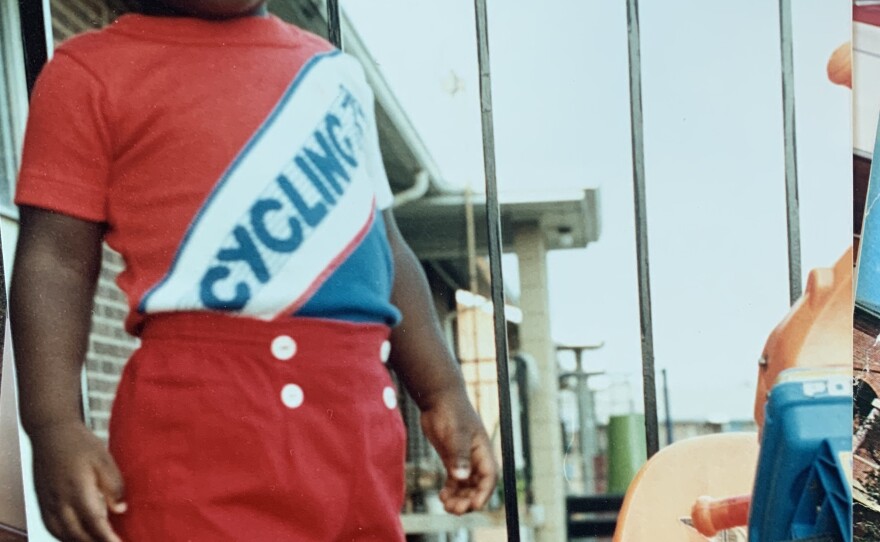Street fashion is a venue for activism, according to Eric Ndelo. Through screen printing, he has elevated social justice movements like Black Lives Matter, empowered young artists and taught entrepreneurship to Congo youth. It was all part of the vision, he says.
Ndelo is the creative director and master screen printer at MacFly Fresh Printing, as well as the co-founder of DRC ApeParel. He grew up in Charlotte, as the son of Congolese immigrants. He lived between white and Black America — too Black to really fit in at his family’s white church, and too African to fit in with his Black peers. But as he got older, Ndelo realized the “race pocket” he lived in could be an advantage. And he is determined to use it to better American society. Host Anita Rao talks with Ndelo about fashion activism and how his Congolese heritage shaped his path.
Interview Highlights
On the dichotomy he noticed while growing up African in the U.S.:
From day one, we knew that there was something different about us. And whether it was our pops telling us our lineage and where we came from, or it was the community letting us know that: You are definitely different. You are definitely African. You are definitely less than. You are definitely an “African booty scratcher.” You are definitely from a place where people don't wear clothes. You're definitely from a place where flies just fly on your face and you let them sit there because that's just the way you live. So we were definitely different and it was a dichotomy, you know? Because, on one side you hear inside your house that you're great. I'm hearing the stories about my grandfather being a senator in the Congo and my uncles being owners of hotels and casinos and churches and being big businessmen. But going out into the streets, into the neighborhood to play with my cousins, only to get picked on every single day, to get beat up every single day.
On the aftermath of his father’s death:
They tried to keep it from me for such a long time because they knew what I was going to do. They knew that I was going to step up and leave my dreams and my vision to sacrifice for my family, which is what the oldest man [of the family] was supposed to do. So that's exactly what I did. So I didn't go to school the next semester. I stayed home, ran the shop, had other jobs to help maintain [the] financial situation at the house. We had to bury our pops and [do] all the other financial things [that come after a death] and all that kind of stuff. It took a very big toll on the family. But I remember one specific thing that also touched me in that time period, was that my mom saw how hard I was working and saw that I was really going to change [the] trajectory of my life and really just focus on home. She said to me: Ndelo, this is your father's dream. Live your dream. And that really, really touched me. And it changed everything for me ... I sold the store and went back to school. And that's where the other phase of my life started.
On the evolution of his business after a trip to Goma teaching Congo youth how to screen print their own designs:
I had already been doing heat press and outsourcing a lot of my designs to different screen printers since 2004. But in 2013, in that experience of going to Goma and being able … [to] be on the ground of the Congo, my homeland, and be able to teach these skills to the next generation [was transformative]. And then to see how they received these skills also taught me that I needed to be going back to Congo and Africa to create this cycle of knowledge, this circle of commerce and circle of culture … [so that] the world could see the beauty of the Congo. So we already knew with DRC that we wanted to show the good parts and the amazing things that we know about Africa … But going to Goma allowed me to be there firsthand.







